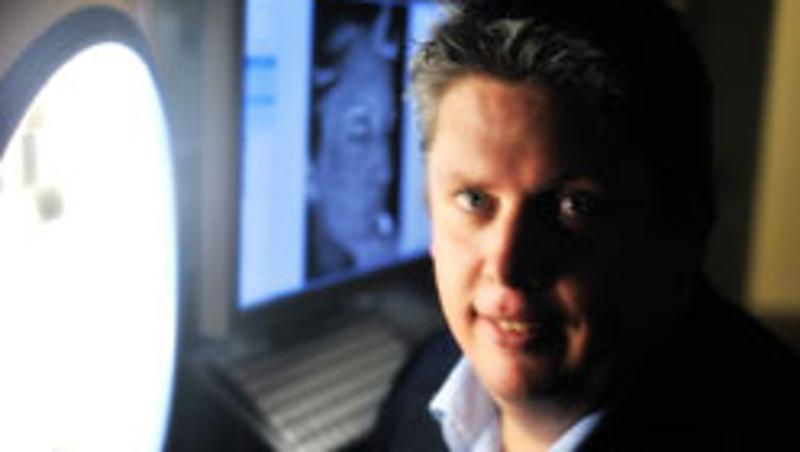
Queensland loves to shine but one title we desperately need to shed is "skin cancer capital of the world", says Queensland University of Technology skin cancer scientist Professor Michael Kimlin, who launched the QUT AusSun Community Skin Cancer Prevention program today.
And getting your photo taken by QUT's AusSun Laboratory's special sun camera at a community event or even in your workplace could well be the first step to keeping tabs on your sun exposure and reducing your skin cancer risk.
The camera shows actual skin damage by taking a normal digital photo and a UV photo for comparison, so even if the skin looks normal on the surface areas of sun exposure are apparent in the UV photo.
Professor Kimlin, who is director of the AusSun Laboratory, said QUT's AusSun Community Skin Cancer Prevention initiative photos have had a powerful effect on most people because they receive an individualised message about their own personal level of sun exposure.
"These photos have a far greater impact than any number of arguments or statistics," said Professor Kimlin, who has piloted the program with more than 500 people in South-East Queensland through community and school skin cancer education sessions.
He said AusSun would now be going out to meet more Queenslanders and offer them the chance for a free photo of their face so that they have visual evidence of the amount of sun damage they already have.
"We believe this grassroots campaign will give people of any age an effective and personalised warning about protecting their skin. Anecdotal evidence suggests people who see the sun damage on their own faces are highly motivated to take on board the sun safety message, perhaps for the first time in their life," he said.
"We have decided to run the program in the wider community because of the growing public demand for our services and so the AusSun Lab will be making regular visitors to primary and secondary school visits, sporting and other community groups, corporate events, workplaces and events such as Ekka and Australia Day."
Professor Kimlin said each person photographed could keep their photo as a reminder or to take to a doctor for advice. Participants would be asked to complete a brief survey about their current sun habits and their intention to consult a health professional about the skin cancer risk as well as their thoughts on the program.
Some participants would be followed up four to six weeks to see if there had been any change in the way they protected their skin from the sun.
"The results of these surveys will help us make sure that the QUT AusSun Community Skin Cancer is relevant to all Queensland and helps us reach our goal of reducing unsafe sun exposure by one third."
For more information on the AusSun Research Laboratory, located at QUT's Institute of Health and Biomedical Innovation, go to http://www.uv.hlth.qut.edu.au/
Media contact: Niki Widdowson, QUT media officer, 07 3138 1841 or n.widdowson@qut.edu.au


